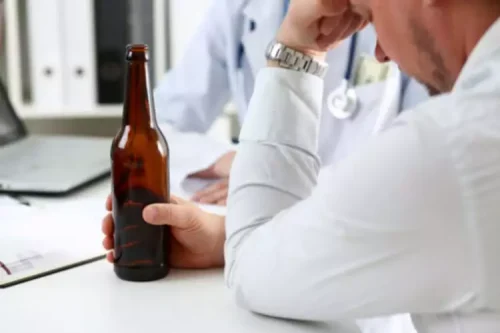
Treatment for polysubstance (multiple drug) addiction is available on both an inpatient and outpatient basis. Finally, due to its diuretic effect, drinking alcohol before bed may mean more bathroom visits during the night—further disrupting sleep. It’s worth noting that most research only focuses on the effect of alcohol on a single night of sleep.
- If you’re drinking excessively or regularly, you are increasing the risk of adverse medication reactions.
- It should not be used in place of the advice of your physician or other qualified healthcare providers.
- Addiction Resource is an educational platform for sharing and disseminating information about addiction and substance abuse recovery centers.
- The amount of alcohol and sleeping pills that it takes to overdose can vary depending on the individual and the specific substances involved.
- When you do something every day, it is easy to forget whether you did it on a specific day.
Alcohol Addiction Statistics to Give You Hope
When you start taking an excessive amount of alcohol, it may prevent you from sleeping. Research shows that high levels of alcohol may negatively affect neurotransmitters in the brain that help one sleep. The danger lies in the fact that the body starts to build tolerance for alcohol. That means you will need increasing amounts of alcohol to drift off to sleep. Alcohol Addiction Center is a free, web-based resource helping to bring education and information to the world of alcohol addiction.
Alternatives to Sleeping Pills if You want to Drink Alcohol
Alcohol suppresses our emotions and provides temporary relief, but it doesn’t do anything to improve the situation and can make it worse. If you’re not home when you need to take your pills, there are daily organizers https://ecosoberhouse.com/ with slots for morning, afternoon, evening, and bedtime that are easy to carry.
Risk of Alcohol and Sleeping Pill Addiction
Coordination becomes more difficult, making activities like driving or operating machinery extremely dangerous. Judgment can be significantly impaired, leading to poor decision-making and an increased likelihood of risky behaviors. It’s crucial to marijuana addiction understand that the combination of these substances can significantly compromise your ability to function safely. If you struggle with sleeping pills and alcohol or other drugs, life in recovery is possible.
Effects of Alcohol and Sleeping Pills on Mental Health
Sedatives are central nervous system depressants, which means they slow down several necessary and life-sustaining processes to induce sleep. As we mentioned, sleeping pills have the potential to provide someone with an ecstatic feeling. Both sleeping pills and alcohol act as a sedative that allows one to relax and get a good sleep. For those suffering from a sleep disorder, sleeping pills can provide relief. Like any other type of medication, there is the possibility that people create an addiction to sleeping pills.
- It also damages the immune system and raises the chances of experiencing other mental health problems like anxiety and depression.
- In conclusion, mixing sleeping pills and alcohol is a dangerous practice that can have serious consequences.
- Additionally, sleeping pills may also enhance the duration of sleep and improve sleep quality.
- This can lead to enhanced drowsiness, which can cause you to feel excessively tired and lethargic.
- Some sleeping medications you can buy over-the-corner, like melatonin and sleep aids with doxylamine or diphenhydramine (the active ingredient in Benadryl).
- Though they are ubiquitous in our society, sleeping pills are far from benign.

Therapy and counseling play a vital role in long-term recovery from alcohol and sleeping pill addiction. These therapeutic interventions provide individuals with the necessary tools and coping strategies to address underlying issues, manage cravings, and prevent relapse. Different therapy approaches, such as cognitive-behavioral therapy (CBT) or motivational interviewing (MI), may be beneficial in the mixing alcohol and drugs causes an effect called recovery process.
Withdrawal from two drugs at once, in this instance sleeping pills and alcohol, tends to raise anxiety and blood pressure to dangerous levels. Further, if seizures ensue, there could be secondary problems such as slips and falls, swallowing one’s tongue, and more. Mixing sleeping pills and alcohol can impair coordination, motor skills, and cognitive function, significantly increasing the risk of accidents and injuries. Both substances can cause drowsiness, confusion, and impaired judgment individually.

Even a small amount of alcohol can increase the sedative effects of sleeping pills, which can be dangerous. It’s important to consult with a healthcare professional or addiction specialist to determine the most appropriate detox program and treatment options based on individual needs and circumstances. When combining sleeping pills and alcohol, it is easy to become confused or delirious.
How Sleeping Pills and Alcohol Affect the Body
- They can be a great help to those who suffer from insomnia on a chronic or periodic basis.
- The most common over-the-counter sleep aids include melatonin and medications containing diphenhydramine, which is the active ingredient in Benadryl.
- Calls to our general hotline may be answered by California Rehab Campus, Day Light Recovery Florida, Banyan Treatment Center, US Addiction Services, Recovery Helpline, or other treatment providers.
- Older adults (especially those who take more than one medication) are also more likely to experience problems, as the ability to clear both alcohol and drugs from the body is reduced with age.
- The dangers of mixing alcohol with medications can range from increased side effects to potentially life-threatening symptoms, overdose, and even death.
Here is a short list of the most common prescription and OTC drugs that can pose a risk to your health if mixed with alcohol, as well as what can happen if the substances are combined. Additionally, drinking alcohol can also make the side effects of a medication worse or even cause new symptoms. This is especially true if you are taking a medication that makes you sleepy or causes sedation. More intense side effects mean you might be more impaired after having one drink than you would typically be. The mixture of opiates and alcohol, for example, can cause your breathing to stop and is a common cause of death.

When Does Alcohol Or Sleeping Pills Present The Highest Health Risk
A wide range of treatment options are available, including flexible outpatient programs that give you the medical attention and support you need while allowing you to live at home. Personalized treatment programs can also help you address any sleep disorders or other co-occurring mental health issues that may be interfering with sleep. When you combine sleeping pills and alcohol, you’re at an increased risk of experiencing negative side effects. As we’ve already discussed, mixing these substances can lead to enhanced sedation and drowsiness, impaired coordination, respiratory depression, mood changes, and disrupted sleep patterns.